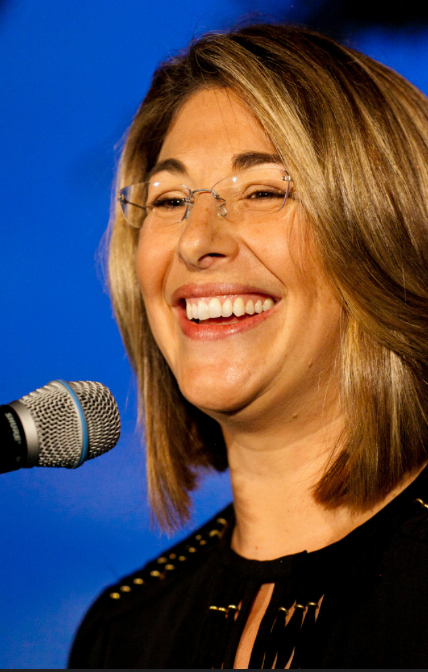CSU’s VP talks about the need for climate change and Naomi Klein’s visit
On Sept. 16, in preparation for the world’s largest climate change march, the Concordia Student Union (CSU) and partners will host a talk by author and social activist Naomi Klein on the challenges facing the fight against climate change.
Klein will be in town for the launch of her fourth book, This Changes Everything: Capitalism vs. the Climate. The event bringing this notorious Montrealer back home is not isolated but part of a much broader movement, of which the fight against climate change is the driving force. It also comes right before the Sept. 21 People’s Climate March in New York City (to which Concordia will send a delegation) and the concurrent Montreal march the CSU will participate in.
“The impact of human activity on the climate is undeniable, and we need to take action in order to avoid the worst impacts of climate change,” explained the CSU’s VP External and Mobilization Anthony Garoufalis-Auger on Klein’s visit and the march.
The fight, he said, is not an easy one. The large transnational corporations involved are not inclined to change the way they maximize profit, so they fight back on three fronts: through academia, via the mass media, and by politics.
In the academic realm, there is an overwhelming consensus that human activity is increasing global temperature. There is a small group of scientists fighting man-made climate change by writing papers that are usually not peer reviewed. These authors, he explained, are often funded by the same actors that support major political groups, particularly the right-wing parties of both the United States and Canada.
And that takes us to the second front: politics. “Unfortunately,” continued Garoufalis-Auger, “major parties, from the Conservatives to the New Democrats, don’t seem to care about the effects of human activity on the climate. They all share the same main view that pipelines and fossil fuels are good for Canadian interest[s]. Our first-past-the-post electoral system prevents minor parties [from becoming] relevant.”
Climate change’s third front is the mass media. Younger people don’t watch as much TV as before, but have shifted their reliance to alternative news channels.
“Bringing awareness of climate change through alternative means such as organizing events like Klein’s book launch, is necessary since we can’t rely on mainstream sources to keep us properly informed,” he said.
Divestment: a valuable tool
Most of the universities in the United States and Canada hold assets of large corporations as part of their endowment funds. A big portion of these publicly traded corporations are related to the fossil fuel industry and other ecologically unsustainable business. This is why many student groups, like our very own Divest Concordia, have started to push for more responsible investment choices by pressuring universities to get rid of those assets and stop financing such corporations. They play on the term “divestment,” which is the opposite of investment ̶ so while buying shares from a company in order to obtain a return is an investment, divestment is the process of selling those assets. Economic profit is not the main goal of divestment, but rather to increase public awareness of the unsustainable policies of corporations.
“The goal behind divestment is not to financially bankrupt the fossil fuel industry, but to bankrupt their public image, and bring the issue to the public’s attention,” concluded Garoufalis-Auger.
Naomi Klein’s book launch is happening on Tuesday, Sept. 16 at 7:00pm at the Imperial Theater on 1430 Bleury street. Tickets are free and can be picked up at both H-711 of the Hall Building (1455 de Maisonneuve West) and the Loyola SC-115 Campus Center at 141 Sherbrooke West.




